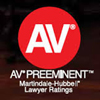Breach Of Warranty Claims Against Manufacturers - Accident Lawyer Hawaii

|

|

|

|
Product Liability Lawyer - Accident Attorney Hawaii
Law Office of William H. Lawson |
|
Defective Products - Table of Contents Breach Of Warranty Claims Against ManufacturersProducts Liability Cases In HawaiiThe Hawaii Supreme Court has made it clear that warranty claims may be made against manufacturers along with claims for strict product liability and negligence. Indeed, this has been specifically recognized by the Hawaii Supreme Court in the case of Ontai v. Straub Clinic and Hospital, Inc., 66 Haw. 237, 249, 659 P.2d 734, 740-41 (1983). As stated in Ontai:
"The implied warranty of merchantability is perhaps the broadest warranty in the Uniform Commercial Code. Schenck v. Pelkey, 176 Conn. 245, 405 A.2d 665 (1978). This warranty is implied by operation of law into every sale of goods by a merchant seller. Id, Hauter v. Zogarts, 14 Cal. 3d 104, 534 P.2d 377 (1975). Merchantability, as provided in Hawaii's statute, means, inter alia, that goods 'are fit for the ordinary purpose for which such goods are used.' HRS § 490:2-314(2)(c). In contrast, the implied warranty of fitness for a particular purpose is narrower and more specific. Schenck v. Pelkey, supra; see HRS § 490:2-315. As provided in 490:2-315, the essential components of an implied warranty of fitness are that the seller has reason to know of the particular purpose for which the goods are required, and that the buyer relies on the seller's expertise in supplying a suitable product. And as stated in comment 1 to HRS § 490:2-315:
"Whether or not this warranty arises in any individual case is basically a question of fact to be determined by the circumstances of the contracting. Under this section the buyer need not bring home to the seller actual knowledge of the particular purpose for which the goods are intended or of his reliance on the seller's skill and judgment, if the circumstances are such that the seller has reason to realize the purpose intended or that the reliance exists. The buyer, of course, must actually be relying on the seller." [emphasis in the original] 66 Haw. at 249-251, 659 P.2d 740-741. The law of warranties applicable to sales is set forth in Chapter 2 of the Uniform Commercial Code. HRS Chapter 490:2 "The Uniform Commercial Code - Sales". HRS Chapter 490 defines various terms related to sales contracts. Some of those definitions include: HRS § 490:2-106(1): "A 'sale' consists in the passing of title from seller to buyer for a price." . . . HRS § 490:2-103(a): "'Buyer' means a person who buys or contracts to buy goods." . . . HRS § 490:2-103(d): "'Seller' means a person who sells or contracts to sell goods." . . . HRS § 490:2-104(1): "'Merchant' means a person who deals in goods of the kind or otherwise by his occupation holds himself out as having knowledge or skill peculiar to the practices or goods involved in the transaction or to whom such knowledge or skill may be attributed by his employment of an agent or broker or other intermediary who by his occupation holds himself out as having such knowledge or skill." Sale Creates Implied Warranties of Merchantability and Fitness and Express Warranties. Hawaii's Uniform Commercial Code, HRS § 490:2-314 states:
"Implied warranty: merchantability; usage of trade. (1) Unless excluded or modified (section 490:2-316), a warranty that the goods shall be merchantable is implied in a contract for their sale if the seller is a merchant with respect to goods of that kind...
"(2) Goods to be merchantable must be at least such as (a) Pass without objection in the trade under the contract description; and (b) In the case of fungible goods, are of fair average quality within the description; and (c) Are fit for the ordinary purposes for which such goods are used; and (d) Run, within the variations permitted by the agreement, of even kind, quality and quantity within each unit and among all units involved; (e) Are adequately contained, packaged, and labeled as the agreement may require; and (f) Conform to the promises or affirmations of fact made on the container or label if any..." Hence, a manufacturer gives all of these implied warranties of merchantability at the time of the sale. A manufacturer also gives an implied warranty of fitness for a particular purpose. HRS § 490:2-315 provides:
"Implied warranty: fitness for particular purpose. Where the seller at the time of contracting has reason to know any particular purpose for which the goods are required and that the buyer is relying on the seller's skill or judgment to select or furnish suitable goods, there is unless excluded or modified under the next section an implied warranty that the goods shall be fit for such purpose." Express warranties may also be created by a manufacturer. HRS § 490:2-313 provides:
"§490:2-313 Express warranties by affirmation, promise, description, sample. (1) Express warranties by the seller are created as follows:
(a) Any affirmation of fact or promise made by the seller to the buyer which relates to the goods and becomes part of the basis of the bargain creates an express warranty that the goods shall conform to the affirmation or promise.
(b) Any description of the goods which is made part of the basis of the bargain creates an express warranty that the goods shall conform to the description.
(c) Any sample or model which is made part of the basis of the bargain creates an express warranty that the whole of the goods shall conform to the sample or model.
"(2) It is not necessary to the creation of an express warranty that the seller use formal words such as 'warrant' or 'guarantee' or that he have a specific intention to make a warranty, but an affirmation merely of the value of the goods or a statement purporting to be merely the seller's opinion or commendation of the goods does not create a warranty." Remedies for Breach of Warranty The remedies to which a purchaser is entitled are set forth in the U.C.C. HRS § 490:2-714 provides that a buyer can recover damages for breach of contract in regards to accepted goods, including breach of warranty, whether express or implied. HRS § 490:2-714(3) allows a buyer to recover incidental and consequential damages for breach of warranty. The buyer's incidental and consequential damages are defined in the following section - HRS § 490:2-715. That section includes subsection (b)(2) which provides:
"(b) Consequential damages resulting from the seller's breach include... (2) Injury to person or property proximately resulting from any breach of warranty." Hence, in summary, a purchaser is entitled to rely upon the implied warranties of merchantability and fitness for a particular purpose, as well as the express warranties which were created, to recover their incidental and consequential damages for breach of such warranties. Proving Ability to Discovery Breach of Warranty is NOT Required A buyer need not prove that a manufacturer could have or should have discovered the defects before sale in order to assert his claims for breach of warranty. The case of Ontai v. Straub Clinic, supra, addressed this issue. The Hawaii Supreme Court stated:
"Moreover, as discussed supra, the jury could have found that the footrest was defective. And it has been held that where a product is defective, even when the defect is not detectable by the seller, the seller is liable under both the implied warranty of merchantability and the implied warranty of fitness for a particular purpose. Vlases v. Montgomery Ward & Co., 377 F.2d 846 (3rd Cir.1967) (sale of diseased chicks). In Vlases, the court explained: 'The entire purpose behind the implied warranty sections of the Code is to hold the seller responsible when inferior goods are passed along to the unsuspecting buyer. What the Code requires is not evidence that the defects should or could have been uncovered by the seller but only that the goods upon delivery were not of a merchantable quality or fit for their particular purpose. If those requisite proofs are established the only exculpatory relief afforded by the Code is a showing that the implied warranties were modified or excluded by specific language under Section 2-316. Lack of skill or foresight on the part of the seller in discovering the product's flaw was never meant to bar liability. The gravamen here is not so much with what precautions were taken by the seller but rather with the quality of the goods contracted for by the buyer.' 377 F.2d 846, 850. (Footnote omitted) See Fredrick v. Dreyer, 257 N.W.2d 835 (S.D.1977) (sale of mobile home with defective doors, wiring and plumbing); see also Sam's Etc. v. Admar Bar & Kitchen, 103 Misc.2d 276, 425 N.Y.S.2d 743 (1980) (sale of pushcarts which lacked mobility)." 66 Haw. 251-252, 659 P.2d 744-745 [Emphasis added] Notification of Breach A buyer who wishes to assert a breach of warranty claim may be required to give notice of the breach to the seller and/or the manufacturer. The comments to HRS §490:2-607 provide "the time of notification is determined by applying commercial standards to a merchant buyer [emphasis added]. 'A reasonable time' for notification from a retail consumer [emphasis added] is to be judged by different standards so that in his case it will be extended, for the rule of requiring notification is designed to defeat commercial bad faith, not to deprive a good faith consumer of his remedy. [emphasis added]" The comments to the official text elaborate further on this point in Section 5: "Under this article various beneficiaries are given rights for injuries sustained by them because of the seller's breach of warranty. Such a beneficiary does not fall within the reason of the present section in regard to the discovery of defects and the giving of notice within a reasonable time after acceptance, since he has nothing to do with acceptance. However, the reason of this section does not extend to requiring the beneficiary to notify the seller that an injury has occurred. What is said above, with regard to the extended time for reasonable notification from the lay consumer after the injury is also applicable here; but even a beneficiary can be properly held to the use of good faith in notifying, once he has had time to become aware of the legal situation." The leading case on the issue of notice in Hawaii is a Federal Court case interpreting Hawaii law - Chapman v. Brown, 198 F.Supp. 78 (D.Haw. 1961), aff'd. Brown v. Chapman, 304 F.2d 149 hula skirt on March 10, 1956, an accident and injuries which took place on November 2, 1957 and notice which occurred to the defendant shop which sold the hula skirt in approximately December of 1958 or January of 1959. The jury found that reasonable notice had been given by the plaintiffs of the breach of warranty. The District Court and the Ninth Circuit Court of Appeals upheld that finding. In so doing, the Court stated "It should be remembered that the defect (as found by the jury) – dangerous flammability – was a latent one which would not from its nature be known to plaintiff or the buyer until the happening of the fire which caused the injury... On the whole, assuming that the statutory notice requirement is applicable, the rule here adopted appears to be the more reasonable one, the one more likely to be followed by the Hawaii courts. However, an even better view would be that 'The notice provision of the Act is inapplicable, at least where personal injuries are sustained.' And where there is no privity." 198 F.Supp. at 85; Accord, Tomczuk v. Chesire, 26 Conn. Supp. 219, 217 A.2d 71 (1965); Fisher v. Mead Johnson Labs, 41 App. Div 737, 341 NYS 2d 257 (1973); Hill v. Joseph T. Ryeson & Son, 165 W.Va. 22, 268 S.E. 2d 296 (1980); Comment 4 to HRS § 490:2-607(3)(a). [Footnote 7 reads: Frumer & Friedman, supra, 19.05(1), pp. 537-538. In La Hue v. Coca-Cola Bottling, Inc., 1957, 50 Wash.2d 645, 314 P.2d 421 the court held that the provision of their Uniform Sales Act as to notice did not apply because this was not an action by a buyer against a seller. See, also, Harper & James, Law of Torts, 1575, 28.17, criticizing notice requirement as to accident victims not 'steeped in the 'business practice' which justifies the rule.'] The District Court's decision in Chapman v. Brown was affirmed on appeal in Brown v. Chapman, 304 F.2d 149 (9th Cir. Haw. 1962). The Appellate Court also found "it cannot be said that, as a matter of law, proper notice was not given within a reasonable time, but... it was a question for the jury to decide under all of the circumstances." 304 F.2d at 152.
|
|
Accident Lawyer Hawaii
Law Offices of William H. Lawson
New client hotline:
Pearl City, Aiea and Waipahu:
Main business phone: Products Liability - Cases & Comment Jones Act- maritime law and seaman cases The Constitution Of The State Of Hawaii Recent Personal Injury and Car Accident News
|
|
Awards and Honors  Martindale Hubbell - AV rated lawyer - Best Rating Possible
Martindale Hubbell - AV rated lawyer - Best Rating Possible
 Multi-Million Dollar Advocates Forum
Multi-Million Dollar Advocates Forum
 AVVO Top Rated Personal Injury Attorney, 10 of 10
AVVO Top Rated Personal Injury Attorney, 10 of 10
 ATLA Top 100
ATLA Top 100
 Lawyers.com - Rated 5.0 out of 5.0 - Top Rating Possible
Lawyers.com - Rated 5.0 out of 5.0 - Top Rating Possible
 National Trial Lawyers - Top 100 Trial Lawyers
National Trial Lawyers - Top 100 Trial Lawyers
 Million Dollar Advocates Forum
Million Dollar Advocates Forum
 American Society of Legal Advocates - Top 100 - 2017
American Society of Legal Advocates - Top 100 - 2017
 Marquis' Who's Who in the World, Who's Who in America and Who's Who in American Law
Marquis' Who's Who in the World, Who's Who in America and Who's Who in American Law
 AVVO Clients' Choice Personal Injury Lawyer
AVVO Clients' Choice Personal Injury Lawyer
 Expertise - Best Car Accident Lawyers in Honolulu 2019
Expertise - Best Car Accident Lawyers in Honolulu 2019
 Best Attorneys in America - Life Charter Member
Best Attorneys in America - Life Charter Member
|
|
Click on a box below to choose one of our 4 menus:
There is NO CHARGE for sending your case information to our law firm. The information provided on this website is preliminary and informational ONLY. It is not legal advice. The use of our webpages does not establish an attorney-client relationship. This website is copyright 1999-2020 and the contents of this website are the property of Personal Injury Attorney William H Lawson. The Terms and Conditions of Use for this website and our Privacy Policy are available here for your consideration. All rights reserved. Hawaii Defective Products Liability Attorney LawyerWe thank you for visiting our site! |






